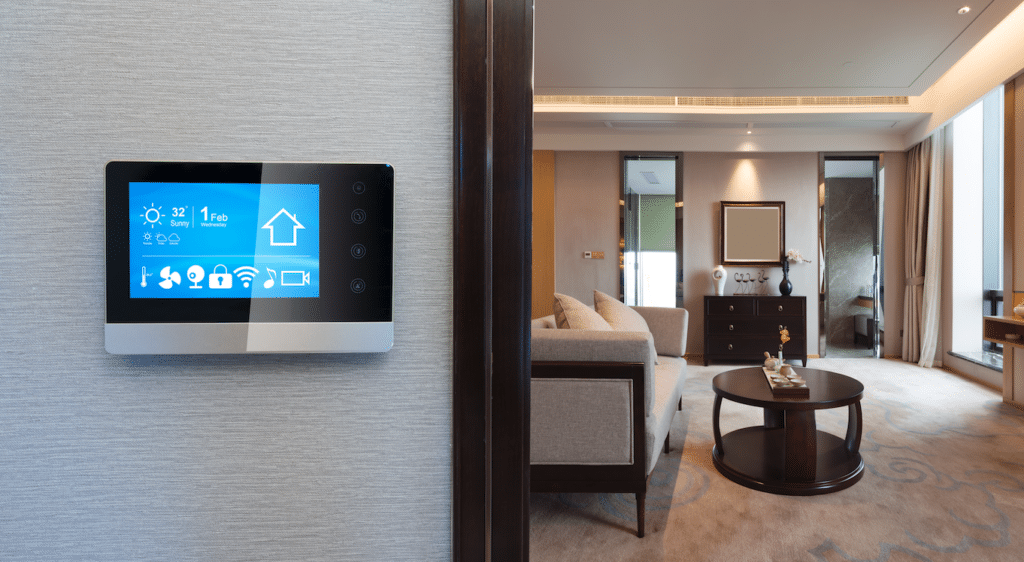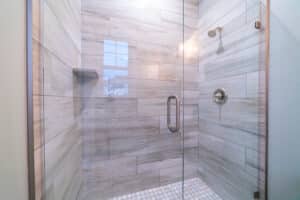A key component of every smart home is a capable smart home hub. These devices integrate with your smart home systems so you can have total control over your home. It’s not just about asking a device to play music or control the lights; it’s about creating a cohesive and integrated living experience. With so many options available, deciding on the proper setup can be overwhelming. While devices like Alexa and Google are popular, they might not be the pinnacle of home automation. In this article, we will explore the pros and cons of these popular devices and offer alternatives that may be a better fit for your smart home.
Home Automation Systems: Professional Grade vs. Alexa and Google
Smart home hubs function as the central command of a smart home system, integrating diverse smart devices into a unified network. They handle communication between all connected systems, such as lighting, security, and home theaters. The importance of smart home hubs lies in their ability to provide centralized control, making it convenient for homeowners to manage their homes using a single interface.
Alexa and Google are often the go-to choices for many consumers. Their appeal can be attributed to several surface-level advantages. Firstly, they are both user-friendly and straightforward to set up. Secondly, they are compatible with a wide range of devices from various manufacturers, allowing homeowners to mix and match their smart home components. However, while these platforms may be sufficient for entry-level smart home setups, they may not meet the requirements of sophisticated, professional-grade home automation systems.
Seamless Integration: Differences in Smart Home Hubs
When it comes to integration, smart home hubs like Alexa and Google offer limited capabilities. While they can connect with various devices, complete seamless integration may not be possible due to their reliance on wireless communication. Wireless connections can be unstable and prone to interference, often leading to inconsistencies in device performance. Additionally, while Alexa and Google support many devices, they don’t support all the systems you may want in your smart home.
On the other hand, a professional-grade smart home hub with wired integration offers distinct advantages. In contrast to Alexa and Google’s reliance on Wi-Fi, a control hub with a wired connection operates independently. These hubs use physical connections, often using Ethernet cables, to connect different devices in the home automation network. As a result, they are not susceptible to common Wi-Fi issues, such as bandwidth congestion or signal dropouts. This ensures consistent performance and reliable communication between devices, eliminating the need for troubleshooting often associated with Wi-Fi networks. Additionally, they come with advanced automation features and customizable programming options, making them the preferred choice for sophisticated home automation setups.
Smart Home Security and Privacy
Smart home hubs like Alexa and Google are often subject to security and privacy risks due to their reliance on Wi-Fi. The wireless nature of these devices exposes them to possible hacks and data breaches. Attackers can exploit vulnerabilities in Wi-Fi networks to gain unauthorized access to the smart home hubs, potentially compromising the privacy of users and the security of their homes. Furthermore, these smart home hubs gather and process large amounts of private user data, which could be mishandled and potentially sold to third parties.
On the other hand, a professional wired home automation system provides robust security and enhanced privacy protection. These systems do not rely on Wi-Fi, so they are less vulnerable to cyber threats. The risk of any unauthorized access is almost eliminated with these systems, as the homeowner is the only one who can grant access to the system. Additionally, since the data remains within a closed network with no internet connectivity, there is less of a data leak risk. This makes them a more secure option for homeowners looking to protect their personal information and maintain the privacy of their homes.
Smart Home Aesthetics and Design
While hubs like Amazon’s Alexa provide a host of smart home capabilities, their standalone design can make them feel out of place in a home setting. These devices are typically available in a few standard shapes and colors, which may not align with every home’s interior design or aesthetic theme. Despite their technological capabilities, these devices can stick out awkwardly in specific settings, particularly in homes with a unique or curated design theme. The lack of customization options can be a significant drawback for homeowners who prioritize aesthetics and want their smart home devices to blend seamlessly with their interior decor. On the contrary, smart control panels integrated into home automation systems present a sleeker, more sophisticated option. These panels offer a streamlined interface that can be customized to match the interior design, thus enhancing the overall aesthetic rather than detracting from it. They can be mounted on walls or even embedded into surfaces, making them less intrusive and more integrated into the home’s design. This level of customization can add a touch of elegance and sophistication to a home, making it a more attractive option for homeowners who value both function and style. If you are looking to start creating your smart home, check out our recent blog post for everything you should consider.
Start Creating Your Smart Home with AIS
While many people know and use devices like Alexa and Google for home automation, they might not be the best choice for everyone. As we’ve seen, there are other options that can offer better connection, more safety, and even look nicer in our homes. Choosing the right setup isn’t just about picking the most popular device; it’s about finding what fits your home and lifestyle best. If you’re thinking of setting up a smart home, take a moment to explore all your choices, including what AIS can offer, so you get the best experience possible. Contact us today for more information or to get started on your smart home!




